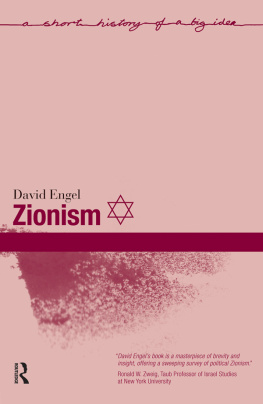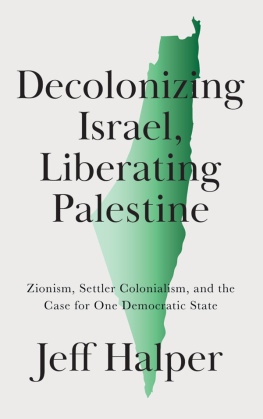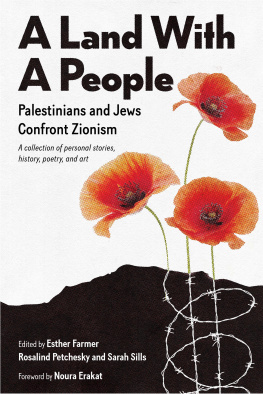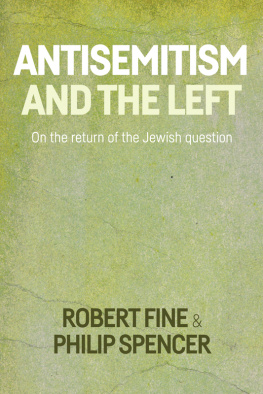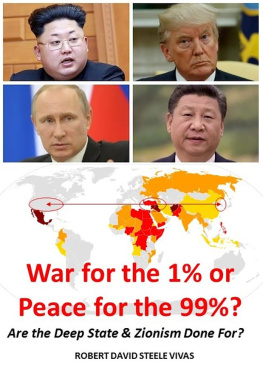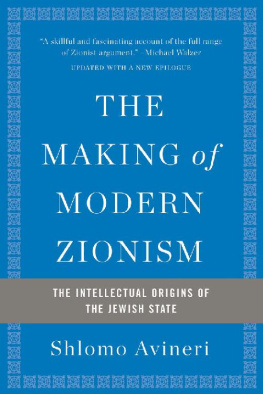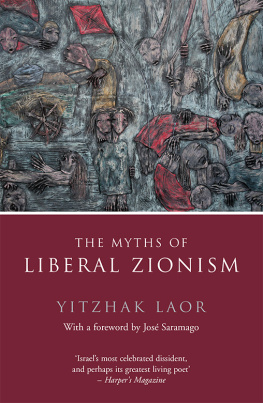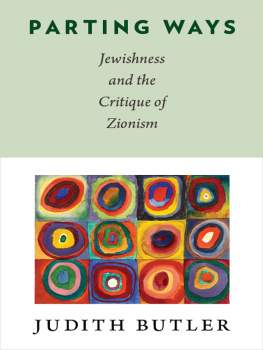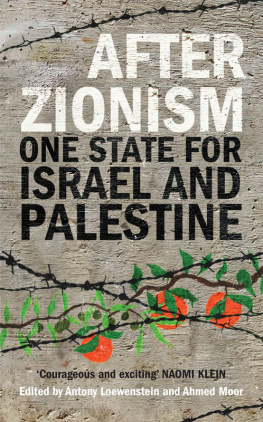False Prophets
of Peace
False Prophets of Peace
Liberal Zionism
and the Struggle for Palestine
TIKVA HONIG-PARNASS

Haymarket Books
Chicago, Illinois
2011 by Tikva Honig-Parnass
Published in 2011 by Haymarket Books
PO Box 180165
Chicago, IL 60618
663-583-7884
www.haymarketbooks.org
Trade distribution:
In the US, Consortium Book Sales and Distribution, www.cbsd.com
In Canada, Publishers Group Canada, www.pgcbooks.ca
In the UK, Turnaround Publisher Services, www.turnaround-uk.com
In Australia, Palgrave Macmillan, www.palgravemacmillan.com.au
All other countries, Publishers Group Worldwide, www.pgw.com
ISBN: 978-1-60846-130-1
Cover design by Eric Ruder.
This research project was made possible with the support of Muwatin, the Palestinian Institute for the Study of Democracy.
Published with the generous support of Lannan Foundation and the Wallace Global Fund.
Library of Congress Cataloging-in-Publication data is available.
10 9 8 7 6 5 4 3 2 1
Contents
For Amichai Kronfeld, a man of integrity and justice;
And for my beloved grandson, Yuval: May Amichais ethics light his way.
My special thanks to Toufic Haddad for his dedicated and careful language editing of the manuscript and for his telling, critical comments. I have also benefited a lot from inspiring discussions with my friend May Jayyusi. Both, together with the support of my daughter Sivan Parnass, enabled the completion of this study.
This book aims to refute the prevailing myths among progressive circles in the West about the Zionist Left in Israel. They are seen as determined opponents of Israels oppressive policies in the 67 occupied territories, the bloody wars launched in Lebanon, and Israels role as warmonger in the service of US imperial interests in the Middle East.
This book concentrates on the discourse of the elite intellectuals and academic circles that have nourished the myths of the Zionist Left and conformed them to the Israeli Labor Partys political perspective and rhetoric. It mainly analyzes their support of an exclusivist Jewish state that acts as the central Zionist premise guiding Israels official ideology, and their attempts to reconcile that with the definition of Israel as a democracy. It explores different dimensions of the vision for the Jewish state adopted by Zionist Left intellectuals, and the
A Jewish and Democratic State
The state of Israel has incorporated the philosophy of the Jewish statea state of the Jews for the Jewsinto its identity, official ideology, and policies toward the Palestinian people within Israel and in the 67 occupied territories, and in the Diaspora. This ideology claims the Jewish people have the historic right to return to their homeland, from which they were expelled two thousand years ago, so as to regain their national sovereignty in an exclusive Jewish state.
The notion of an exclusive Jewish state is essentially incongruous with liberal democracy, in which equal citizenship rights are granted on a territorial basis to all citizens regardless of their ethnic or national origin. But Israel, according to its self-identification and vision, is not a state for all its citizens. Rather, it is a state for the Jewish people throughout the world. This prioritizes Jews over the 1,250,000 indigenous Palestinians who by 2009 comprised around 20 percent of the states population. Israeli law does not recognize an Israeli nationality. Thus, while Jewish citizens are classified as having Jewish nationality, Israeli law methodically strips Palestinian citizens of their national identity and reduces them to mere ethnicity or religious affiliation (like Muslims, Christians, Druze, etc.). As a result, Israel is not just another nation-state in which minority communities lack some secondary rights owned by the majority. Instead, it is a settler-colonial state established by the Zionist movement for advancing and expanding its colonialist project for the benefit of the Jews alone.
The inequality between the Jewish majority and the Palestinian population, a minority in its homeland after the mass ethnic cleansing of 1948known as the Nakba (Arabic for catastrophe)is structural to the Jewish state. Palestinian
The premises of Zionism are central to the Jewish state. They were introduced into the Declaration of the Establishment of the State of Israel (known as the Declaration of Independence), Later, elements of both Zionism and religion were funneled into Israeli laws and regulations and into the blueprints of Israels social and political institutions.
The Declaration of Independence confirms the myths of the Divine promise to Abraham and the religious messianic content of redemption by means of the return to the promised land. It emphasizes the Old Testament as a source of inspiration for Israels legal system and its commitment to Zionism.
The national collectivedefined in Jewish religious termswas later institutionalized in the Law of Return, which grants every Jew (according to the Halacha
The Palestinian radical thinker Azmi Bishara correctly comments on Baraks perspective: Justice Barak attempts, in effect, to codify Zionisms messianic vision through his affirmation that the Zionist bond is a religious-political one, which effectively precludes any distinction between the notions of a Jewish state, a Zionist state, and a state for Jews. However, since its establishment Israel has claimed to be a democratic state as well as Jewish and Zionist, as highlighted in the Declaration of Independence:
It [the state of Israel] will foster the development of the country for the benefit of all its inhabitants; it will be based on freedom, justice and peace as envisaged by the prophets of Israel; it will ensure complete equality of social and political rights to all its inhabitants irrespective of religion, race or sex; it will guarantee freedom of religion, conscience, language, education and culture; it will safeguard the Holy Places of all religions; and it will be faithful to the principles of the Charter of the United Nations.
The promise for national equality was deliberately omitted from the list of equal rights emphasized in the Declaration. Zionist liberals consistently overlook this omission and argue that the Declaration promises full equality to all Israeli citizens along with the Jewish identity of the state. Additionally, they continue to downplay Israeli laws and institutions that systematically assign Palestinians their second-class status, in contrast to the myriad prerogatives of Jewish citizens.
The Zionist Left in Israel has never challenged the prevailing belief that Israeli law implements the democratic and egalitarian values extolled in the Declaration of Independence. Indeed, explicit legislation against Palestinian citizens, which would reveal Israel as an Apartheid state, is avoided. As the jurist David Kretzmer, a law professor at the Hebrew University, notes: Only in extremely rare situations [like the Law of Return] does the criteria of one being a Jew or non-Jew, act as the distinguishing criterion in Israeli laws. Instead, a developed intricate language of laws allow for the systematic preference of Jews and discrimination against the Palestinian citizens.
It has become commonplace among many Zionist Left scholars and activists to describe the forms of discrimination in the occupied territories as analogous to South Africas Apartheid system. In the occupied territories, different legal and administrative systems for the two populations, Jewish and non-Jewish, prevail. The parallels with South Africa are undeniable. Yet members of the Zionist Left in Israel refrain from acknowledging the Apartheid nature within the Green Line.


